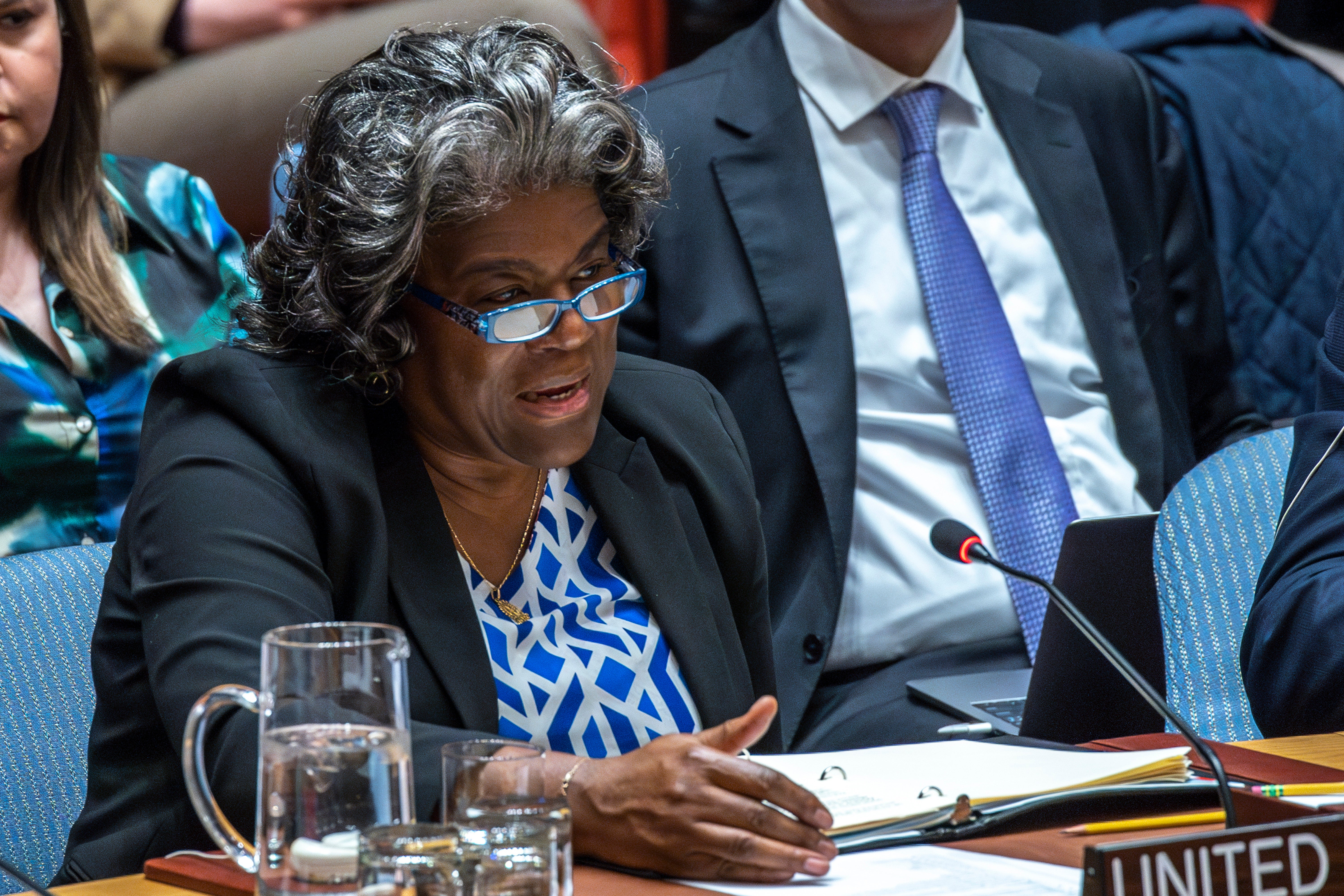The UN will vote on its first resolution on artificial intelligence, aimed at ensuring its safety
The General Assembly is set to vote on what would be the first United Nations resolution on artificial intelligence

Your support helps us to tell the story
From reproductive rights to climate change to Big Tech, The Independent is on the ground when the story is developing. Whether it's investigating the financials of Elon Musk's pro-Trump PAC or producing our latest documentary, 'The A Word', which shines a light on the American women fighting for reproductive rights, we know how important it is to parse out the facts from the messaging.
At such a critical moment in US history, we need reporters on the ground. Your donation allows us to keep sending journalists to speak to both sides of the story.
The Independent is trusted by Americans across the entire political spectrum. And unlike many other quality news outlets, we choose not to lock Americans out of our reporting and analysis with paywalls. We believe quality journalism should be available to everyone, paid for by those who can afford it.
Your support makes all the difference.The General Assembly is set to vote Thursday on what would be the first United Nations resolution on artificial intelligence, aimed at ensuring the powerful new technology benefits all nations, respects human rights and is “safe, secure and trustworthy.”
The United States, which sponsored the resolution, has said it hopes the world body will adopt it by consensus, meaning it would have the support of all 193 U.N. member nations.
U.S. National Security Advisor Jake Sullivan said that if the resolution is adopted it will be a “historic step forward" in fostering the safe use of AI.
The resolution “would represent global support for a baseline set of principles for the development and use of AI and would lay out a path to leverage AI systems for good while managing the risks,” he said in a statement to The Associated Press earlier in March.
The draft resolution aims to close the digital divide between rich developed countries and poorer developing countries and make sure they are all at the table in discussions on AI. It also aims to make sure that developing countries have the technology and capabilities to take advantage of AI's benefits, including detecting diseases, predicting floods, helping farmers, and training the next generation of workers.
The draft recognizes the rapid acceleration of AI development and use and stresses “the urgency of achieving global consensus on safe, secure and trustworthy artificial intelligence systems.”
It also recognizes that “the governance of artificial intelligence systems is an evolving area” that needs further discussions on possible governance approaches.
Big tech companies generally have supported the need to regulate AI, while lobbying to ensure any rules work in their favor.
European Union lawmakers gave final approval March 13 to the world’s first comprehensive AI rules, which are on track to take effect by May or June after a few final formalities.
Countries around the world, including the U.S. and China, and the Group of 20 major industrialized nations are also moving to draw up AI regulations. And the draft resolution takes note of other U.N. efforts including by Secretary-General Antonio Guterres and the International Telecommunication Union to ensure that AI is used to benefit the world.
Sullivan told AP the United States turned to the General Assembly “to have a truly global conversation on how to manage the implications of the fast-advancing technology of AI.”
The U.S. draft resolution encourages all countries, regional and international organizations, tech communities, civil society, the media, academia, research institutions and individuals “to develop and support regulatory and governance approaches and frameworks” for safe AI systems.
It warns against “improper or malicious design, development, deployment and use of artificial intelligence systems, such as without adequate safeguards or in a manner inconsistent with international law.”
A key goal, according to the draft resolution, is to use AI to help spur progress toward achieving the U.N.’s badly lagging development goals for 2030, including ending global hunger and poverty, improving health worldwide, ensuring quality secondary education for all children and achieving gender equality.
The draft calls on the 193 U.N. member states and others to assist developing countries to access the benefits of digital transformation and safe AI systems. It “emphasizes that human rights and fundamental freedoms must be respected, protected and promoted through the life cycle of artificial intelligence systems.”
The United States began negotiating with all U.N. member nations about three months ago, spent hundreds of hours in direct talks with individual countries and 42 hours in negotiations, and accepted input from 120 nations, a senior U.S. official said. The resolution went through several drafts and achieved consensus support from all member states last week, the official said, speaking on condition of anonymity because he was not authorized to speak publicly.
U.S. Ambassador Linda Thomas-Greenfield told AP last week that the resolution “aims to build international consensus on a shared approach to the design, development, deployment and use of AI systems,” particularly to support the 2030 U.N. goals.
If adopted, she said, it will be “an historic step forward in fostering safe, security and trustworthy AI worldwide.”